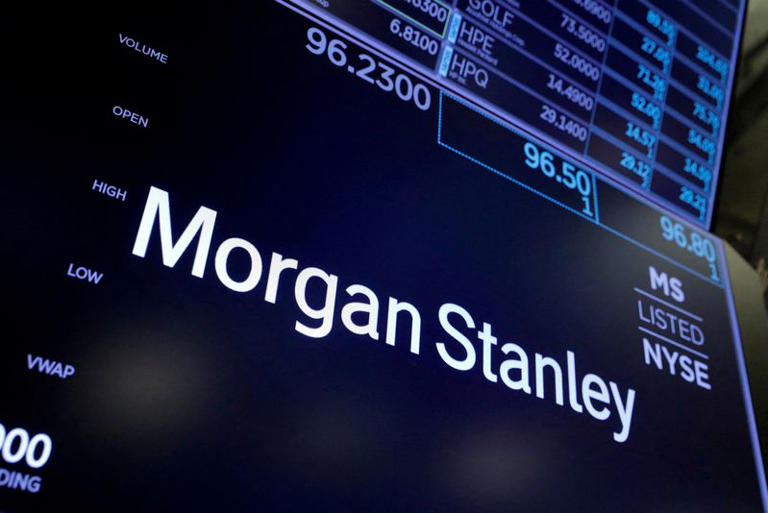On Wednesday, financial markets faced a dramatic upheaval as computer-driven macro hedge fund strategies orchestrated a staggering $20 billion sell-off in equities. This sell-off, identified by Morgan Stanley as one of the most significant risk-unwinding events in the past decade, is projected to continue with hedge funds set to liquidate at least another $25 billion in equities over the coming week. This wave of selling has been a response to a combination of disappointing earnings reports and broader market volatility.
The catalyst for this massive market move was a series of underwhelming earnings reports from major tech giants such as Tesla and Alphabet. These disappointing results triggered a wave of panic selling among investors, leading to a significant drop in the stock market. Specifically, the tech-heavy Nasdaq Composite plunged by 3.6% on Wednesday, marking its worst single-day performance since October 2022. This sharp decline reflects the broader market sentiment that has been increasingly jittery over recent weeks.
Morgan Stanley’s commentary provided insight into the evolution of market dynamics, noting that the recent volatility initially appeared rotational, with investors shifting their focus from mega-cap stocks to smaller, more nimble companies. However, this rotational shift quickly transformed into a more generalized index deleveraging, characterized by widespread selling across various sectors and indices.
The firm warned that if this heightened volatility persists, the potential for further market declines is significant. According to their analysis, a continued drop of 1% in global equities could prompt additional sales amounting to $35 billion. In a more severe scenario where global equities fall by 3%, macro hedge funds might offload up to $110 billion in equities. This highlights the substantial risk and potential for further market instability if current conditions continue.
Despite the turmoil, the main U.S. stock indexes showed a positive rebound on Thursday afternoon, buoyed by unexpectedly strong GDP data. This economic data provided a temporary reprieve from the broader market sell-off and suggested that the economy might be in better shape than anticipated.
James Koutoulas, CEO of Typhon Capital Management, provided further context by highlighting the broader investor sentiment. Despite the significant sell-off on Wednesday, he noted that many investors remained heavily invested in equities. Historically, periods of interest rate hikes by the Federal Reserve have been followed by economic slowdowns or recessions. However, Koutoulas observed that investors seem to be betting against this historical pattern, hoping that the current economic conditions will not follow the same trajectory.
The shift in hedge fund strategies is particularly noteworthy. According to Morgan Stanley, hedge funds have increasingly adopted a more bearish outlook. They are reducing their long positions, or bets that stock prices will rise, while maintaining or even increasing their short positions, or bets that stock prices will fall. This shift has been particularly pronounced in sectors such as information technology, consumer staples, and materials, where portfolio managers have been actively selling shares.
Goldman Sachs also reported that its clients have increased their short positions in macro products, including large-cap and corporate bond exchange-traded funds (ETFs). This trend reflects a growing skepticism among investors regarding the future performance of these asset classes.
The impact of Wednesday’s market upheaval on hedge fund performance was significant. Global hedge funds experienced an average decline of 0.67%, with equities long/short hedge funds in the Americas faring the worst, with a 1.04% drop. This performance contrasts with broader market indices; the MSCI All Country World index fell by 1.67%, while the S&P 500 was down 2.31%. Despite these declines, hedge funds managed to mitigate some of their losses relative to the broader stock indexes.
Mario Unali, head of investment advisory at Kairos Partners, characterized the current environment as challenging for hedge funds. He described the situation as “the worst drawdown of an otherwise positive year,” emphasizing the difficulty hedge funds are facing as they navigate through the tumultuous market conditions.
The significant movements in hedge fund positioning underscore the complexities and risks present in the current financial landscape. The interplay between macroeconomic indicators, central bank policies, and investor sentiment continues to drive market volatility. The massive equity sell-off by computer-driven macro hedge funds serves as a stark reminder of the unpredictable and fragile nature of the financial markets.
As investors and market participants assess the evolving economic data and corporate earnings reports, the path forward remains uncertain. The substantial shifts in market dynamics highlight the importance of closely monitoring economic indicators, central bank actions, and geopolitical developments, all of which will influence the future trajectory of the markets. The current environment underscores the need for vigilance and strategic positioning as investors navigate through these turbulent times.
